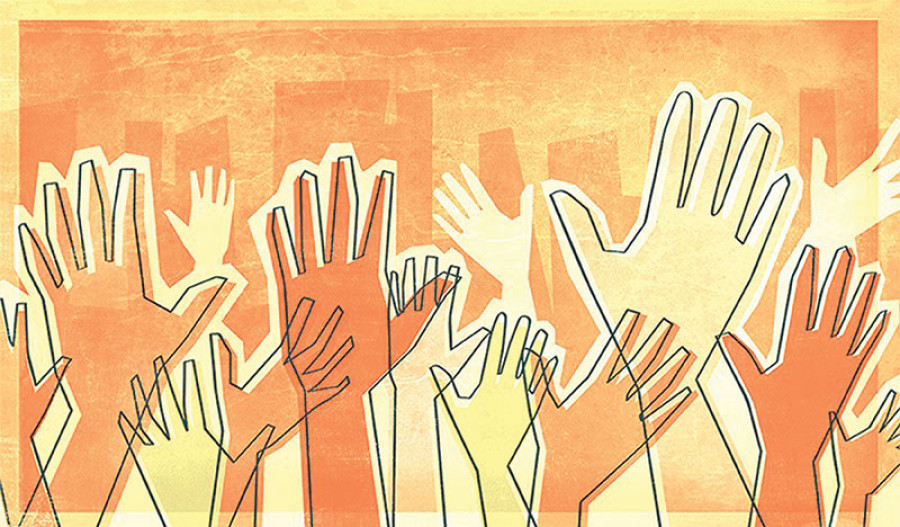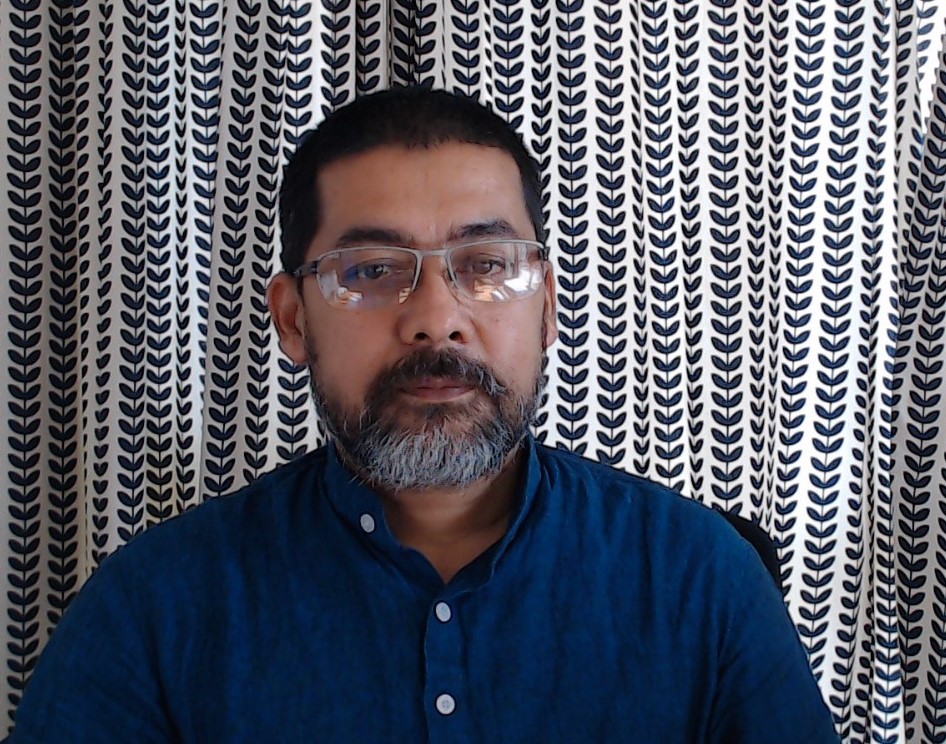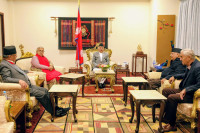Opinion
Fed up with politics
In order to make democracy work, it is necessary to establish a democratic culture
Chandra D Bhatta
Nepal’s political history of the last 70 years is a testimony to the fact that political parties have waged successive ‘movements’ to restore democracy. They have succeeded on this front, but failed terribly to consolidate the achievements and strengthen democracy. Sadly, democracy here has always failed halfway down the road. It certainly would be harsh for those who have been directly involved in the political movements. The reality is that people have become skilled in subverting the democratic process. We have developed certain capacities to derail the political system itself if we do not like it. Liking and disliking, therefore, has no solid reasons. Likewise, there are enough examples where we are found to have been systematically engaged in discrediting the state, its institutions and democracy.
External problems
Another point that needs to be taken into consideration in relation to democratic stability is that most countries in the world have had problems with external actors. In fact, many of them have had to struggle—first, for their own national independence and then for democracy. In the context of Nepal, we never had to go through this situation. In contrast, we always have fought among ourselves—be it for democracy or for any other purpose. That conflict is among us. Look at history. This does not necessarily mean that we had no external problems, but many of them were of our own making. Our inability to resolve internal problems ourselves has invited external actors into our domestic affairs. Interestingly, many of the internal problems revolve around the ruling classes and their interests. This class has continuously failed to address their own problems, let alone the problems of the broader society.
If we look at history, we see that it is always the rulers who have created more problems than the ruled. This is so because power is intoxicating. To be free from this, rulers need to have true commitment which seems to be grossly missing in our case. Under these conditions, it becomes difficult to ascertain what is right and what is wrong. The never-ending tussle for power at the ruling level has made people fed up of politics. This is so because the elite have always used politics to serve their own interests. Leaders are being treated in fancy hospitals abroad with government money. The common people are being sucked into a system which does not allow them to take a breath peacefully, let alone have treatment. Similarly, those who are already on the state’s payroll are being offered multiple benefits, but there is very little for the common people. They are only being asked to be more vigilant about democracy and nationalism as if they are the ones who are creating problems.
We live in a time and enjoy the facilities which no other generation in the past has enjoyed. Globalisation has brought enormous opportunities for the people.
No doubt, economic and social indicators are on the higher side. Yet, there is some sort of disillusionment and discontent among the elite. The reasons for this are built around the fact that all of them want to be at the top at the same time, which is simply not possible. Those who are not at the top are hell bent on dragging down those who are there. This sort of politics has brought frustration among the general public.
Political decay
The issue is why this again. The answer to this question is not that simple because it is connected with power, perks and prestige. Nobody is willing to share them with others. We now have federalism, but there is a clear tussle to hold on to power between those who are at the centre and those who are at the periphery. The concentration of political and economic power at the top level is leading not only towards ‘inequality’ but also towards political decay. Such a state of affairs has forced people to think why we need all these movements and systems if they are not bringing any changes to our life but only replace one feudal system with another.
The trust deficit with the state and the political system is widening. Youths are frustrated to such an extent that they want to leave the country on the next available flight. Neither the procedural democracy nor the bureaucratic state serves the interests of the people. A bureaucratic state performs bureaucratic duties to prove its existence. The procedural democracy that we have now does not provide much hope for the people. We need to bring a major shift in our political culture which is creating obstacles to strengthening democracy in Nepal. All other factors are secondary.
- Bhatta is a political scientist




 14.12°C Kathmandu
14.12°C Kathmandu











